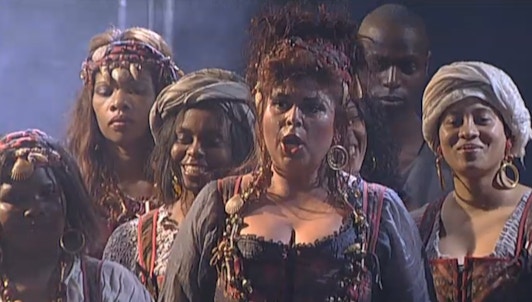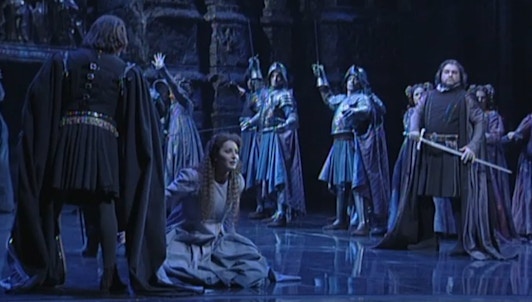"I Masnadieri are outlaws, that is to say criminals living outside the law. These are also young people who do not see any future for themselves," explained director Gabriele Lavia.
This opera, which the Neapolitan public has not had a chance to see for decades, deals with contemporary issues: young people's rebelliousness, or Man's difficulties in dealing with the vagaries of fate. Musically rich and complex, I Masnadieri has an extraordinary beginning according to conductor Nicola Luisotti. "I find the Prelude and its solo cello extremely interesting," Luisotti told euronews. "The solo instrument indicates that each character in this opera is alone; nobody loves anybody, and everyone hates everyone. The tragedy is caused by a lack of communication – all the music here reflects that solitude."
The opera's topicality is also echoed in a famous romanza sung by Carlo, the anti-hero – 'I feel as if I were attached to evil by a chain, I have the impression that the earth, that my own homeland, my whole world is rejecting me, that even God is ignoring me.' "These are words one can read on the graffitied walls of any subway in New York, or Rome, or Naples, where unhappy, angry, young men use walls to express their desire for freedom – freedom which is perceived here as the dismantling of all barriers, all limits, whereas freedom is by definition limited, confined," says Luisotti.
I Masnadieri is a tragedy, even a tough and outrageous one, but it is also full of arias, choruses, duets and quartets, in the best tradition of Italian opera.
"Music is one of Italy's main riches, we have a diamond mine called opera, which is sung from Greenland to New Zealand from Fiji to Ulan Bator," enthuses Luisotti. "The Italian opera is sung the world over and yet sometimes we despise it, as if it were something old; but opera is not something of the past, it's of today! The San Carlo opera house represents the best of Italian history, its real, deep, true beauty, which has its roots in our culture and our Art – melodrama is us!"



